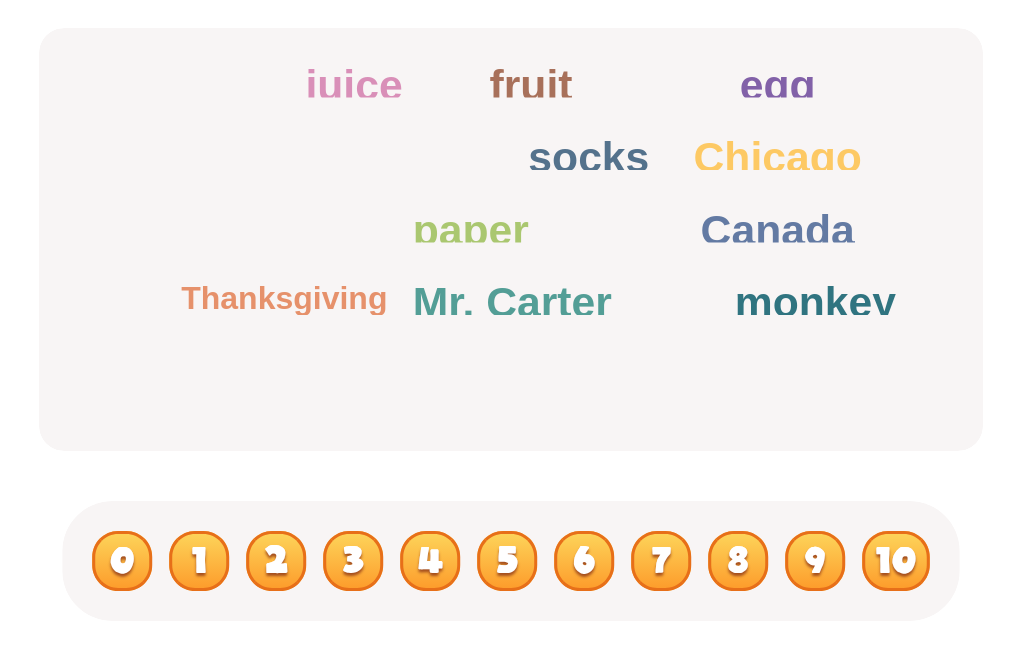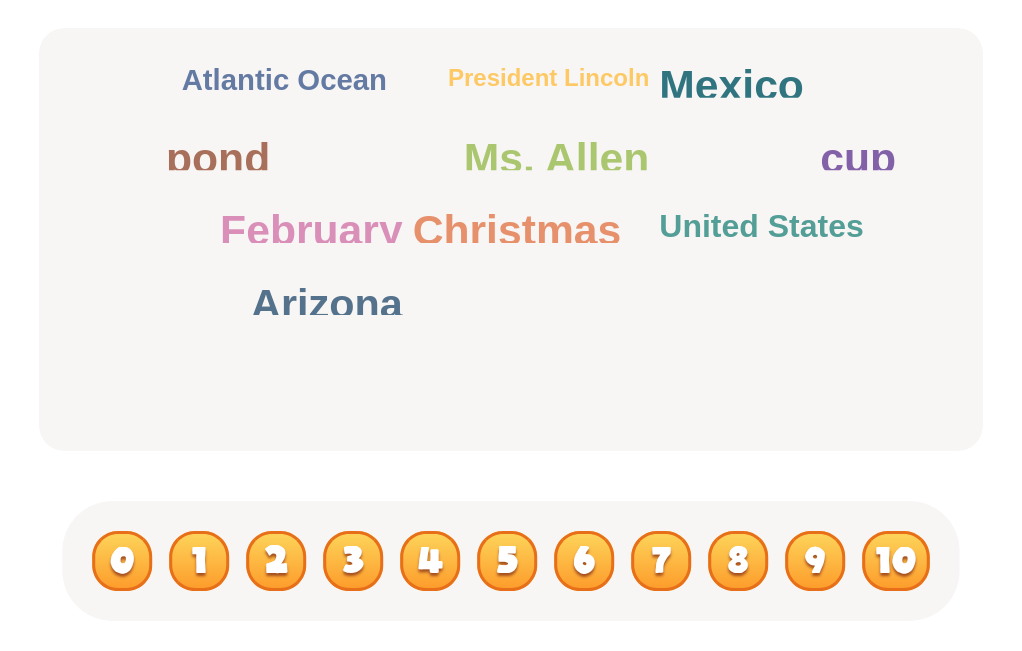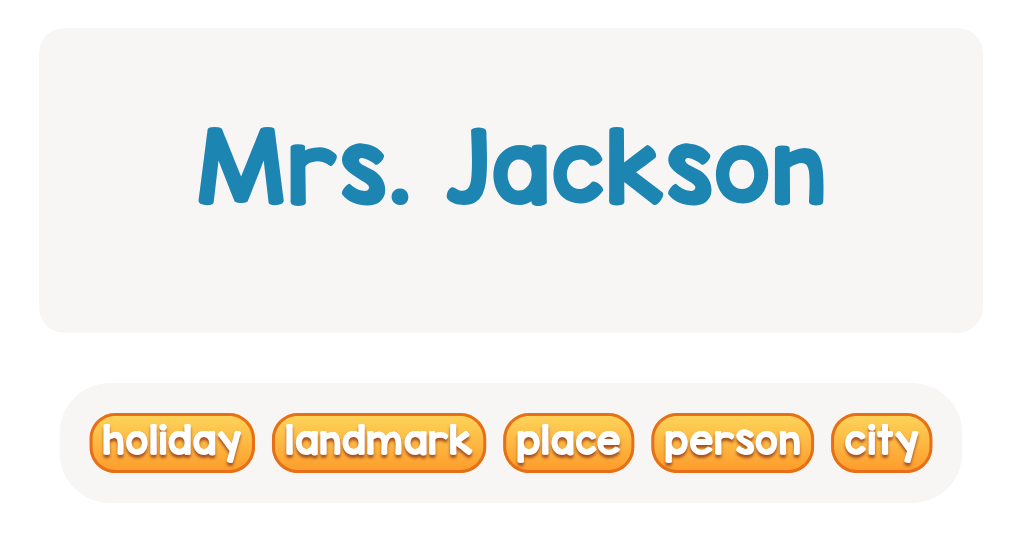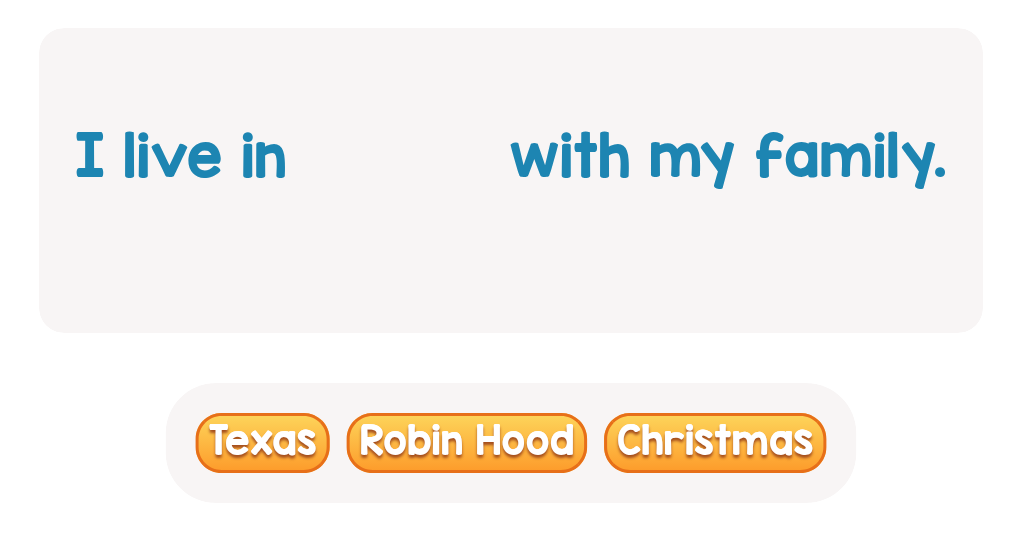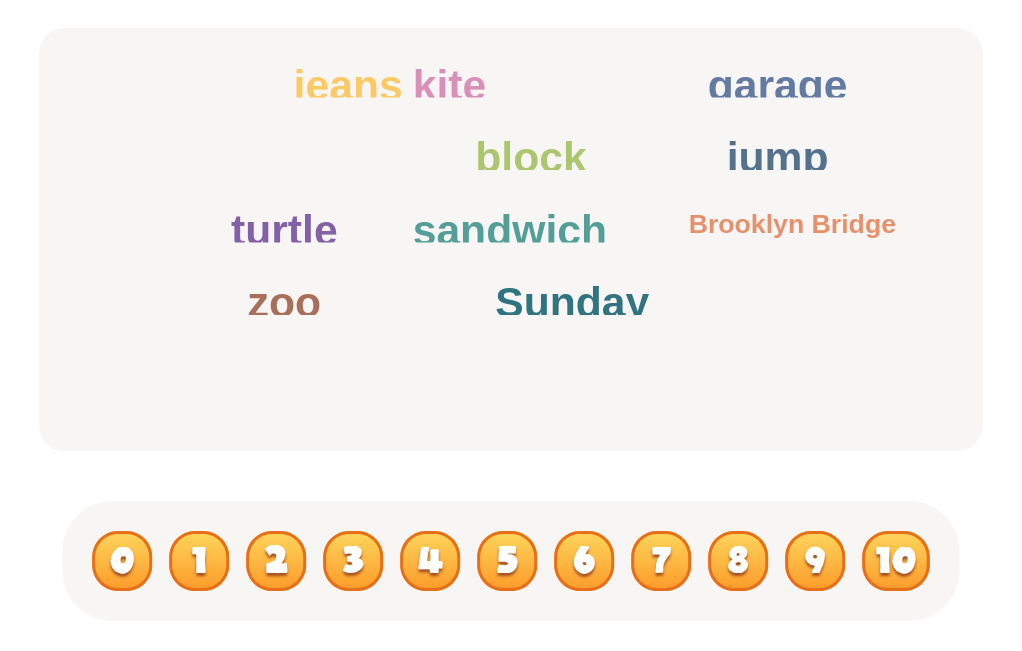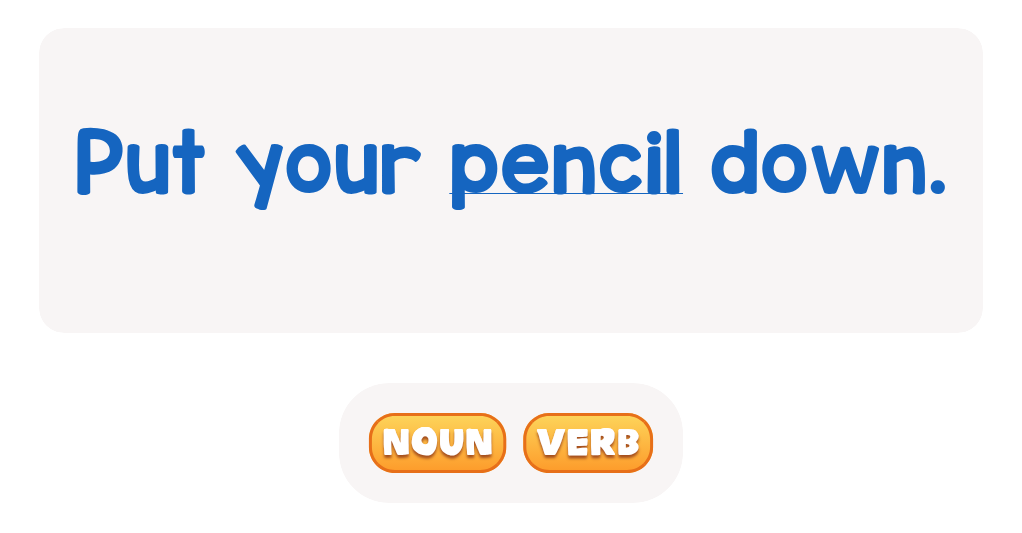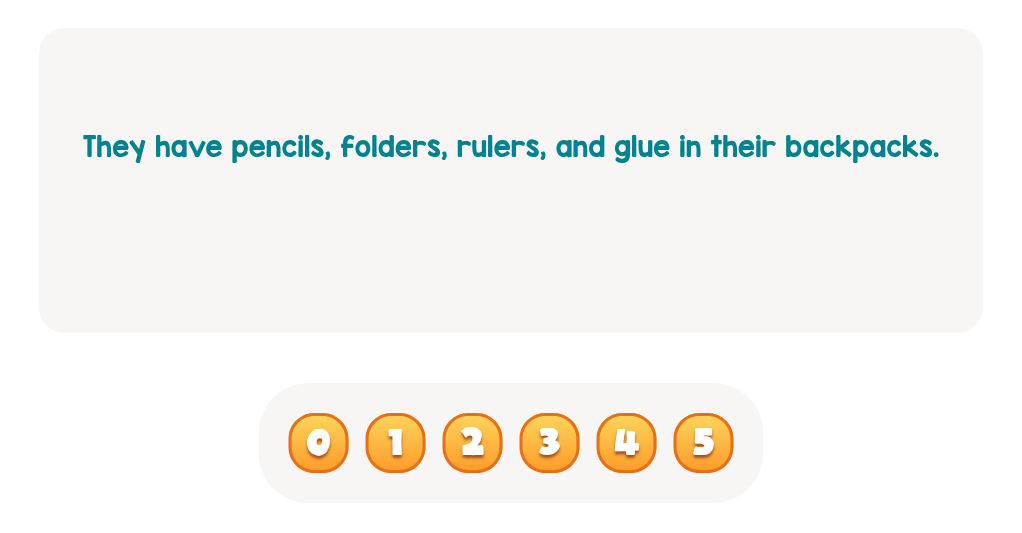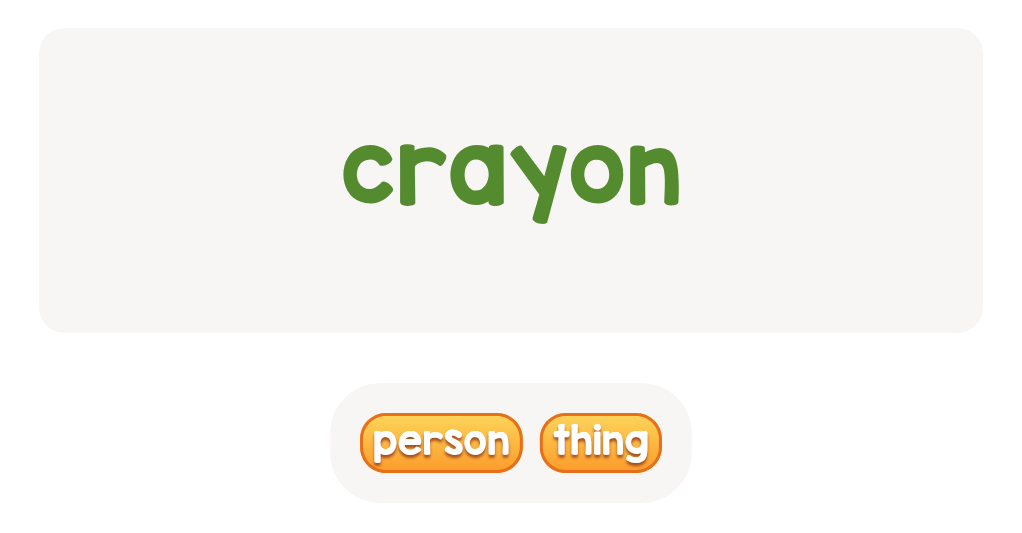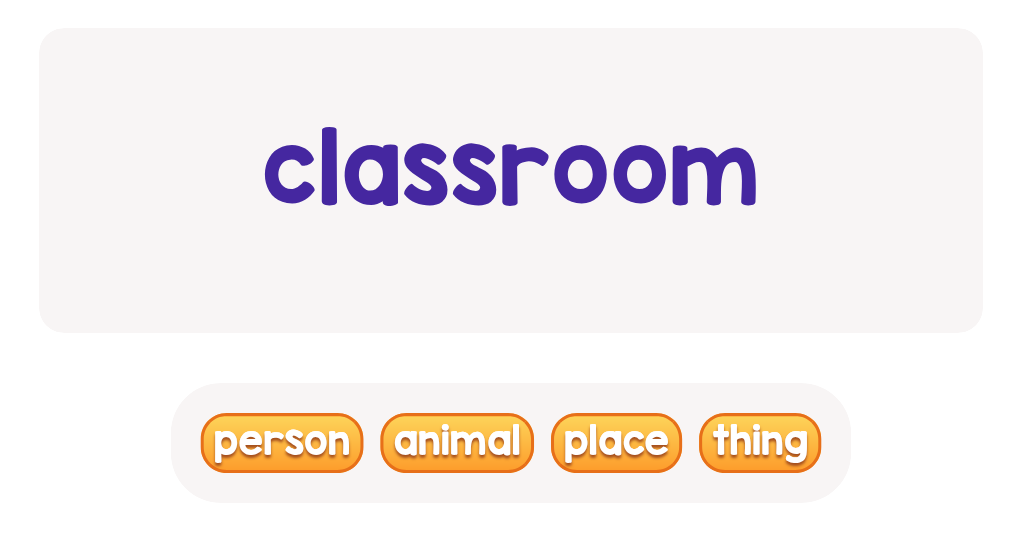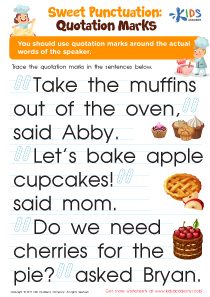Understanding plurals Extra Challenge Grammar Worksheets for Ages 6-9
5 filtered results
-
From - To
Looking to challenge your child’s knowledge of plurals? Our "Understanding Plurals Extra Challenge Grammar Worksheets for Ages 6-9" are perfect for advanced learners! These worksheets go beyond the basics, offering engaging exercises designed to deepen understanding of singular and plural nouns. Through fun and interactive tasks, children will explore irregular plural forms, exception rules, and common suffixes, all aimed at strengthening their grammar skills. Ideal for classroom use or homeschooling, our expertly crafted resources ensure kids stay motivated and excited to learn. Elevate your child’s grammar proficiency with our specially designed extra challenge worksheets today!
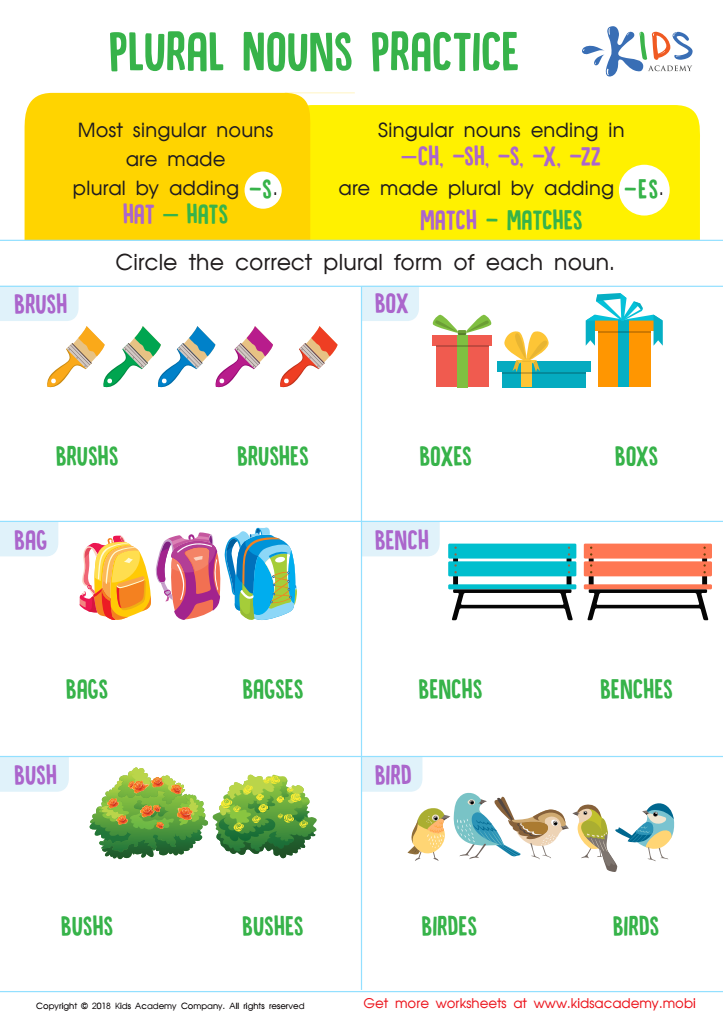

Plural Nouns Practice Worksheet
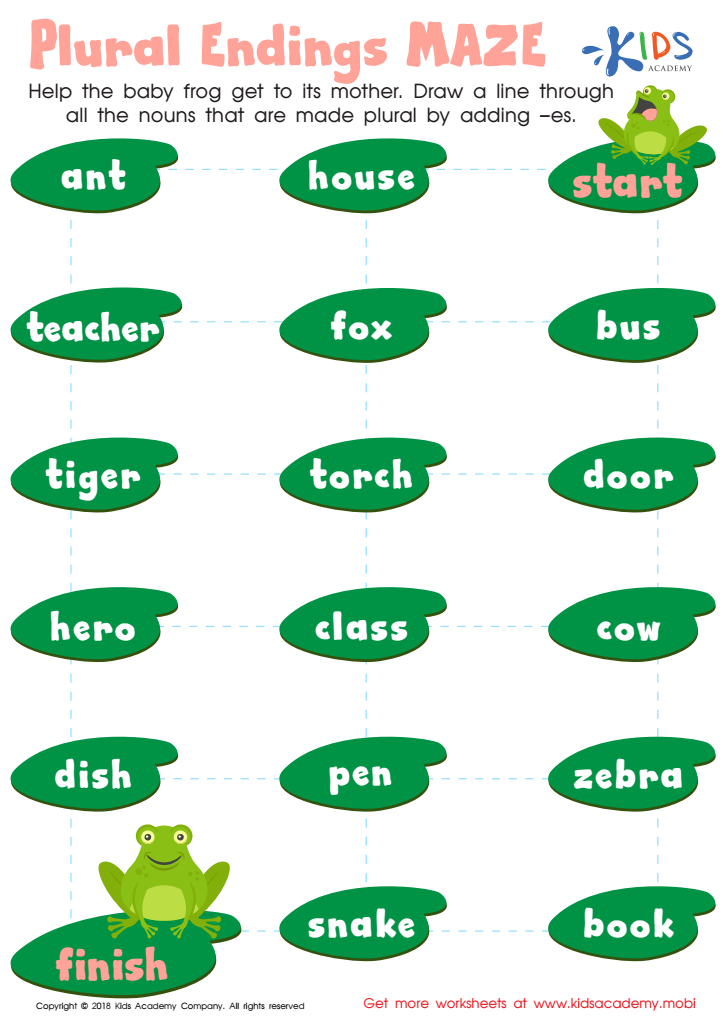

Plural Endings Maze Worksheet
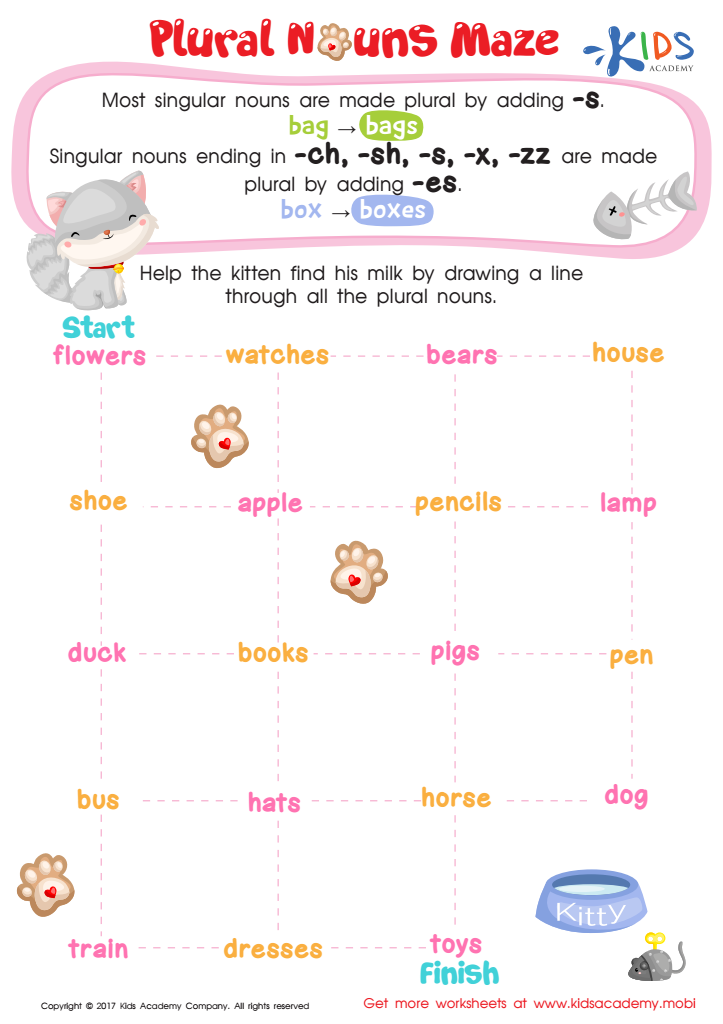

Plural Nouns Maze Worksheet
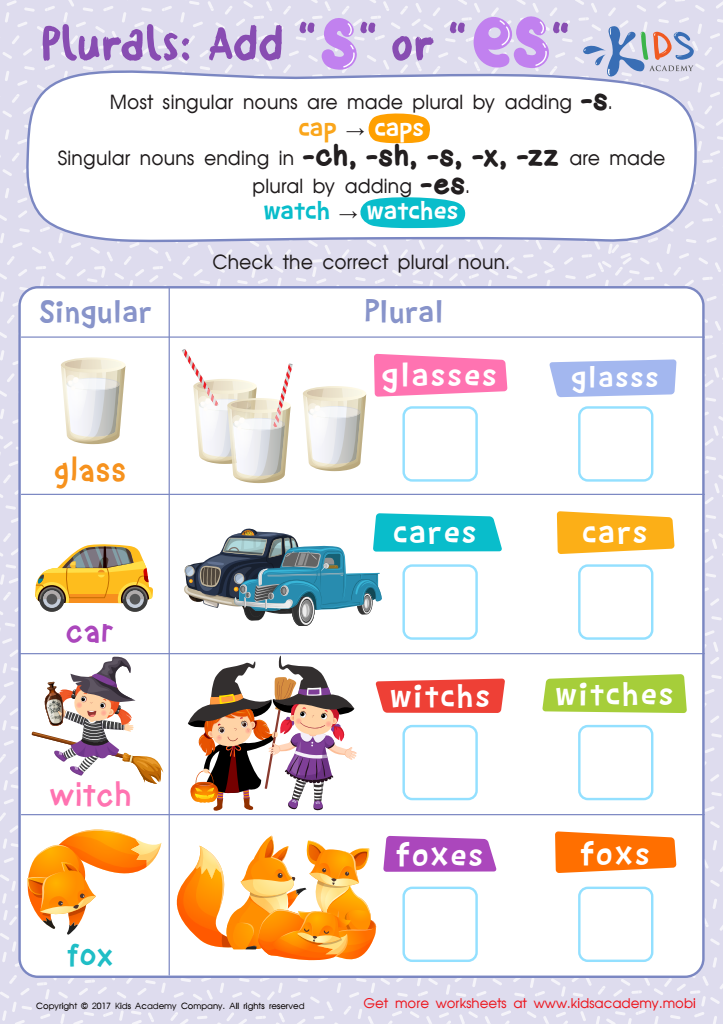

Plurals: "–es" or "–es"? Worksheet
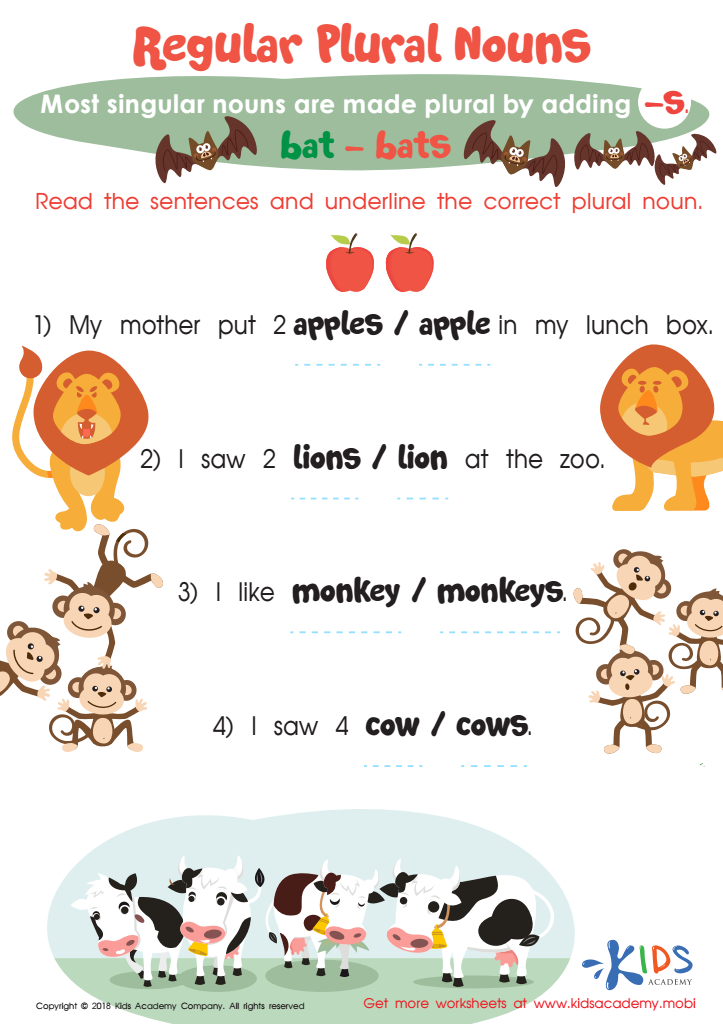

Regular Plural Nouns Worksheet
Parents and teachers should place significant emphasis on understanding plurals for children aged 6-9 because mastering this fundamental grammar concept is crucial for language development. During these formative years, children’s cognitive abilities are rapidly expanding, making it an optimal time to introduce foundational language skills. Grasping plurals is not only vital for grammatical accuracy but also enhances sentence structure, enabling children to express ideas more precisely and effectively.
Understanding plurals also boosts reading and writing proficiency. Early exposure to such grammar rules enriches vocabulary and aids comprehension, which lays the groundwork for academic success across subjects. Moreover, tackling pluralization challenges fosters critical thinking and problem-solving skills as children learn to navigate exceptions and irregular forms.
Incorporating playful, extra-challenge activities makes learning engaging and enjoyable, encouraging a positive attitude towards grammar. Parents and teachers can create interactive games or exercises that make the learning process enjoyable, ensuring that children remain motivated and less prone to frustration.
Furthermore, early mastery of plurals and other grammatical constructs propels children's confidence in communication, both verbally and in writing. This lays a sturdy foundation for future linguistic endeavors, fostering a lifelong appreciation for learning and effective communication.
 Assign to My Students
Assign to My Students
